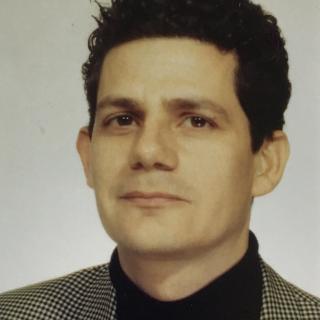Juan Ruffino was born on 10 July 1959 in Geneva. He was Italian by birth but would eventually seek Swiss citizenship. He took the literary route in high school, and while completing his secondary degree by correspondence in 1980 he had already begun an apprenticeship that led to a professional certificate as an automobile mechanic three years later. In 1984, Juan began studying political science at the University of Geneva; he completed his coursework at the Graduate Institute of International and Development Studies.
By his mid-30s, Juan had worked as the secretary for the Albanian International Scholarship Foundation and as an auditor for Switzerland’s professional apprenticeship programme; taught French to foreigners living in Geneva; completed an internship at the International Service for Human Rights; worked as an aircraft loader; conducted research for Antenna International; and been an advisor in a financial firm. But these positions left Juan unfulfilled. He was passionate about international relations and eager to engage with people in need.
Juan applied to the ICRC in January 1995 and began his first assignment, in Bujumbura, Burundi, in August. He was given the position of protection delegate, which involved visiting detainees, helping restore contact among family members who had become separated, and supporting vulnerable groups such as women, children and displaced people. Following a brief interlude in Goma, Zaire (Democratic Republic of the Congo), in January 1996, Juan continued his Burundi posting, which was slated to end in early August of that year.
Juan was already looking forward to his next mission. He had proven to be an adept negotiator, combining rational arguments with patience, respect for his counterpart, and a dose of humour. He was in his element at the ICRC, and expressed a desire to continue working in challenging environments. But this was not to be. On 4 June 1996, he and two colleagues – Cédric Martin and Reto Neuenschwander – were killed in a deadly ambush while returning to Bujumbura in a clearly-marked ICRC vehicle. They had been repairing the water supply in a refugee camp near Mugina. Juan was 36 years old.
Drawing on his calm intelligence, quiet enthusiasm and unshakeable determination, Juan pursued two very clear ambitions in his work with the ICRC: to find meaning in life and to restore a sense of dignity to people who were suffering. Along the way, he came to serve as a source of strength for those he worked with and for those he sought to help.
